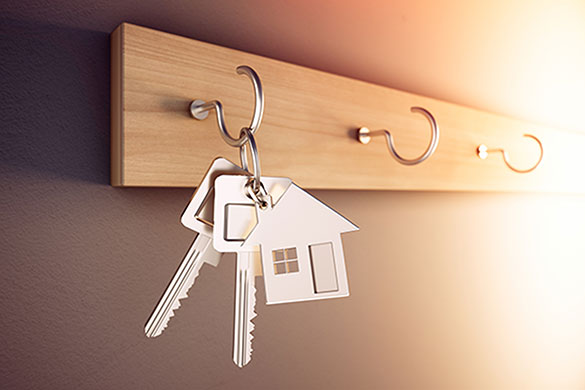
Although for most students it isn’t necessary to return to Liverpool until the autumn, the latest Government guidance states that you are now able to make a one-off move to an alternative residence. Your new accommodation will then become your ‘household’ in terms of Government guidelines and social distancing measures.
When you are planning to move into your new student accommodation make sure to follow our 10 steps to ensure your tenancy gets off to a great start:
1. Create a moving in rota: organise a rota to avoid moving in at the same time as your new housemates, and bring only one person to help. The first person to arrive should do the main checks. Make sure you communicate about moving in with your new landlord before collecting the keys so that everything can be cleaned thoroughly and made ready for your arrival.
2. Check the inventory: this lists the condition of furniture, fixtures and fittings, and is supplied by your landlord or agent. Have a good look through it, check there are no missing items, and that all appliances work properly. Make a note on the inventory of any damage and return it straight away with dated photographs, requesting repairs if necessary. If an inventory isn’t provided you can produce your own. The inventory will be checked again at the end of your tenancy and is important when it comes to returning your deposit.
3. Take meter readings: give these to the energy supplier and landlord as you don’t want to pay for the previous tenant’s bills! Make sure to keep a record for yourself. Decide with housemates how you’re going to split the bills. It’s a good idea to take meter readings every month to make sure your bills are accurate and not estimated, as these can sometimes be higher than expected, or leave you with a hefty bill at the end of your tenancy.
4. Find out where the stopcock is: this is the mains water tap and is the ‘off switch’ for all the water in your home. It is usually under the kitchen sink, but check with your landlord if you’re not sure. Hopefully you’ll never need to use it, but if you don’t know where it is and a pipe bursts you’ll be powerless to stop it flooding your home!
5. Find out how to turn off the gas and where the electric fuse board is: just in case of an emergency, and so you can get things working if the electric fuse trips.
6. Check your bins: it’s important to keep on top of household waste. Bins need to be put out at the right time and place, and stored away between collection days to ensure they don’t get lost or stolen. Make sure you know when your collection day is and do your bit to keep your neighbourhood clean and tidy. Click here for more information about bins and recycling.
7. TV licence: you must have one to watch or record programmes shown live on TV or an online TV service, and this includes watching BBC programmes on iPlayer. This applies to any device you use, whether that’s a TV, laptop, mobile phone, tablet, or games console. There are some exceptions, and there can be different rules for halls of residence and shared houses, so find out more by visiting the TV Licensing website.
8. Get insured: it’s important to have contents insurance in place for when you move into your new property so that your possessions are protected should they be lost, damaged, or stolen. Comparethemarket.com have put together a useful guide that explains what to look for when purchasing a policy.
9. Fire safety: take some time to agree a fire escape plan to make sure everyone is clear what to do in the event of an emergency. This means knowing where the fire exits are and making sure furniture or stored items do not block them. If there is no fire exit, plan an alternative escape route other than by the main entrance door. It’s important to have a working smoke alarm fitted on each level of accommodation and to test them regularly. If you don’t have any, or they’re not working, contact your landlord.
10. Get registered: make sure you register with a local GP and dentist. You can also register to vote if you want to change this from your home address – it only takes 2 minutes online.
Moving into your new student residence can understandably feel like a reason to celebrate, but you should not be having any large gatherings or meetings with multiple households indoors at the moment because of the risk of COVID-19 infection.
You may also have neighbours who are elderly, shielding or working from home, so please be considerate with your noise levels and sensitive to the fact that any unruly behaviour has the potential to cause a lot of upset and anxiety.
In the current pandemic, it’s more important than ever that neighbours support one another. The steps outlined above, along with the information on our accommodation community pages, will help you to start your new tenancy on a positive note whilst ensuring that you and your housemates stay safe, consider your neighbours and follow social distancing regulations.